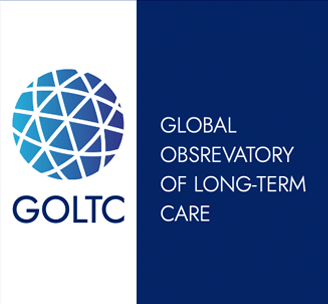Project Summary
Visit-id: a study of care home visiting arrangements during Covid-19 is being conducted by a team from the Care Policy and Evaluation Centre (CPEC), London School of Economics and Political Science, led by Josie Dixon with Klara Lorenz-Dant, Edmund Stubbs and Manna Mostingham, Karen Harrison-Dening and Daniel Casson.
It is funded by the National Institute for Health Research (NIHR), Policy Research Programme as part of its Recovery, Renewal, Reset: Research to inform policy responses to COVID-19 in the health and social care systems funding call. It runs from 2021 to 2023. It is supported by a steering group involving senior representatives from Dementia UK, Alzheimer’s Society, Healthwatch, Carers UK, HC-One, Care England, Jewish Care, Freemantle Trust, Glasgow Royal Infirmary/University of Glasgow and Sheffield CCG and by a reference group of four experts-by-experience with close relatives living in a care home during the pandemic.
The study will examine how care homes in England have developed and implemented their visiting policies during the COVID-19 pandemic, and the factors that shape this. In particular, the study will identify range and diversity across care homes in:
- how visiting policies were developed
- how Government guidance on care home visiting has been interpreted and implemented
- how scope in Government guidance for policies to take account of individual residents’ needs has been reflected in visiting policies
- the use of other support (e.g. non-Government guidance, practical tools, professional assistance) to develop and implement policies, and the role of local authority, or other local advice and requirements
- how the views and perspectives of residents, families and others have been taken into account when developing policies
- how policies have been communicated to residents, families and others
- experiences of implementing visiting policies, including views on the workability of policies
- the acceptability of policies to residents, families and staff; and any equity or other impacts.
Throughout, the researchers will identify the varied opportunities and challenges facing care homes in developing and implementing their policies, and identify aspects that have worked well and less well. Importantly, they will also identify the characteristics and circumstances of care homes, and other contextual factors, that have helped to shape care homes’ different approaches and experiences.
Methods:
Stage 1: Up to 150 care home managers (or a nominated senior member of staff) will complete an online questionnaire with ten questions inviting brief narrative answers (approximately 20-30 minutes to complete). We will also ask respondents to supply us with their written visiting policy, where they have one. Where relevant, questions about developing visiting policies will be directed to central care home organisation managers.
Stage 2: In-depth interviews with 40 care home managers or senior staff in care home organisations to further explore issues emerging from the survey.
Stage 3: In the final stage of the project we will speak to around 30 family carers of people living in care homes (recruited separately) to learn about their experiences and views of care home visiting policies.
Outputs
Dixon, J., Lorenz-Dant, K., Stubbs, E. et al. Registered care home managers’ experiences of responding to the national care home visiting guidance in England during the Covid-19 pandemic; a multi-method qualitative study. BMC Geriatr 23, 236 (2023). https://doi.org/10.1186/s12877-023-03935-w
PUBLICATIONS & OTHER OUTPUTS | |
| Output 1 | Dixon, J., Lorenz-Dant, K., Stubbs, E. et al. Registered care home managers’ experiences of responding to the national care home visiting guidance in England during the Covid-19 pandemic; a multi-method qualitative study. BMC Geriatr 23, 236 (2023). Background Visiting restrictions in care homes in England and many comparable countries during the Covid-19 pandemic were extensive and prolonged. We examined how care home managers experienced, understood and responded to the national care home visiting guidance in England in developing their visiting policies. Methods A diverse sample of 121 care home managers across England, recruited through varied sources including the NIHR ENRICH network of care homes, completed a 10-item qualitative survey. Follow-up, in-depth qualitative interviews were conducted with a purposive sub-sample of 40 managers. Data were analysed thematically using Framework, a theoretically and methodologically flexible tool for data analysis in multiple researcher teams. Findings Some viewed the national guidance positively; as supporting the restrictive measures they felt necessary to protect residents and staff from infection, or as setting a broad policy framework while allowing local discretion. More commonly, however, managers experienced challenges. These included the guidance being issued late; the initial document and frequent, media-led updates not being user-friendly; important gaps, particularly in relation to dementia and the risks and harms associated with restrictions; guidance being unhelpfully open to interpretation while restrictive interpretations by regulators limited apparent scope for discretion; fragmented systems of local governance and poor central-local coordination; inconsistent access and quality of support from local regulators wider sources of information, advice and support that, while often valued, were experienced as uncoordinated, duplicative and sometimes confusing; and insufficient account taken of workforce challenges. Conclusions Underlying many of the challenges experienced were structural issues, for which there have been longstanding calls for investment and strategic reform. For increasing sector resilience, these should be urgently addressed. Future guidance would also be significantly strengthened by gathering better data, supporting well-facilitated peer exchange, engaging the sector more fully and dynamically in policy-making and learning from care home managers’ and staff’s experiences, particularly of assessing, managing and mitigating the wider risks and harms associated with visiting restrictions. |
|---|---|

